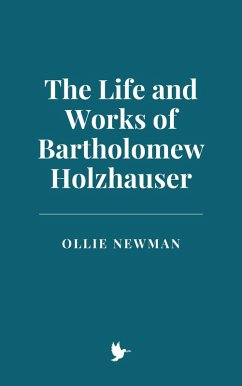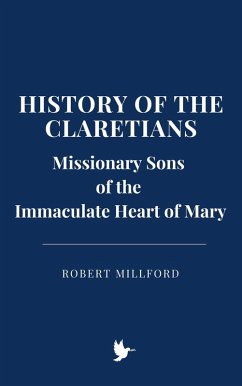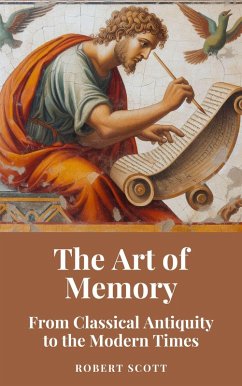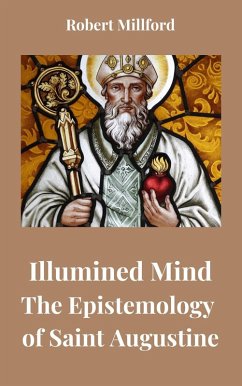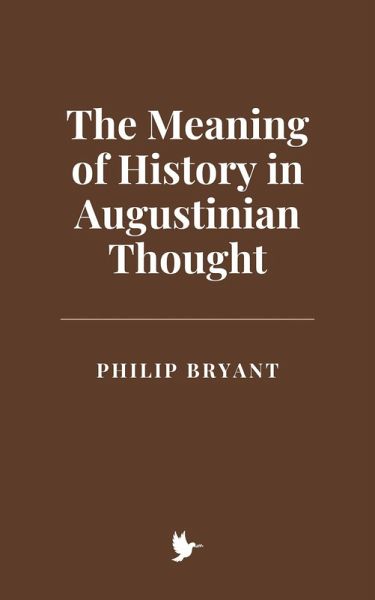
The Meaning of History in Augustinian Thought (eBook, ePUB)

PAYBACK Punkte
0 °P sammeln!
This book explores the profound and enduring significance of Augustine of Hippo's philosophy of history, as articulated in his major works such as De Civitate Dei (The City of God) and Confessions. Augustine's thought represents a foundational synthesis of theological, philosophical, and historical perspectives, framing history as a sacred narrative shaped by divine providence and oriented toward the ultimate fulfillment of the City of God.The chapters trace Augustine's development of key concepts, including the tension between time and eternity, the centrality of divine grace and human agency...
This book explores the profound and enduring significance of Augustine of Hippo's philosophy of history, as articulated in his major works such as De Civitate Dei (The City of God) and Confessions. Augustine's thought represents a foundational synthesis of theological, philosophical, and historical perspectives, framing history as a sacred narrative shaped by divine providence and oriented toward the ultimate fulfillment of the City of God.
The chapters trace Augustine's development of key concepts, including the tension between time and eternity, the centrality of divine grace and human agency, the problem of evil, and the dual framework of the Civitas Dei and the Civitas Terrena. Through meticulous analysis of primary sources, Augustine's theological anthropology, eschatology, and reflections on creation, fall, and redemption are unpacked to reveal their significance for understanding the human condition and historical existence. The book also engages with critiques of Augustine's thought, examining how his ideas have been received, adapted, and contested from the Middle Ages to the postmodern era.
Augustine's legacy is considered in light of both its historical influence and contemporary relevance. His vision continues to shape discussions of morality, politics, and the philosophy of history, providing a framework for navigating the tensions between secular and religious narratives, progress and finitude, and the temporal and eternal. By situating Augustine's philosophy within its historical and intellectual contexts while exploring its dynamic engagement with modern and postmodern thought, this work affirms Augustine's enduring contribution to the search for meaning in history and human life.
The chapters trace Augustine's development of key concepts, including the tension between time and eternity, the centrality of divine grace and human agency, the problem of evil, and the dual framework of the Civitas Dei and the Civitas Terrena. Through meticulous analysis of primary sources, Augustine's theological anthropology, eschatology, and reflections on creation, fall, and redemption are unpacked to reveal their significance for understanding the human condition and historical existence. The book also engages with critiques of Augustine's thought, examining how his ideas have been received, adapted, and contested from the Middle Ages to the postmodern era.
Augustine's legacy is considered in light of both its historical influence and contemporary relevance. His vision continues to shape discussions of morality, politics, and the philosophy of history, providing a framework for navigating the tensions between secular and religious narratives, progress and finitude, and the temporal and eternal. By situating Augustine's philosophy within its historical and intellectual contexts while exploring its dynamic engagement with modern and postmodern thought, this work affirms Augustine's enduring contribution to the search for meaning in history and human life.
Dieser Download kann aus rechtlichen Gründen nur mit Rechnungsadresse in A, B, CY, CZ, D, DK, EW, E, FIN, F, GR, H, IRL, I, LT, L, LR, M, NL, PL, P, R, S, SLO, SK ausgeliefert werden.










